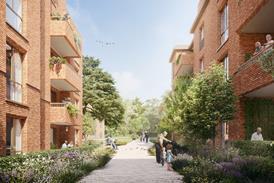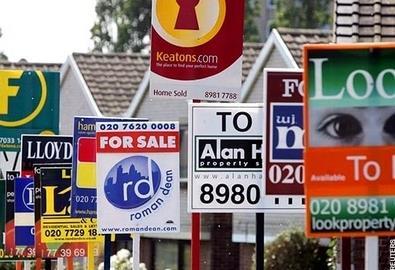UK house prices are at their lowest level since July 2004 but the average price of a residential property in England and Wales fell by only £1,575 in April, significantly less than the six month average fall of £2,649.
The figures published today in a house price poll, prepared by Chesterton Humberts and the Centre for Economics and Business Research (CEBR), said the average residential property price for April was £162,601, a decrease of 1% month on month from the upwardly revised level of £164,176 in March.
Monthly house price changes have recently become more volatile. This is due to the low volume of sales combined with the slowing fall in prices, resulting in conflicting reports of swings in house prices.
Chesterton Humberts said across all local authorities in England and Wales, 88% have now experienced year on year falls in excess of 10%.
The largest year on year fall was in the north-west where prices have declined by 19.1%. The shallowest fall has been in Scotland, with prices down 10.5% on the previous year.
Prices in London are 16.4% below the peak in February 2008, with the average house price at £295,832.
Flat prices have fallen furthest, by 19.1% over the year to April 2009. Detached houses have fallen the least, at 16.0% year on year.
Robert Bartlett, Chesterton Humberts CEO, said: ‘The revised HIP legislation has led to a predictable dwindling stock level in London, which is 20% down on last year and falling at an alarming rate. Our agents are reporting multiple bids above asking prices on many properties and in Kensington, we have had three new offers on a property due to exchange yesterday with another purchaser.
‘Purchasers who have been sitting on the sidelines in rental properties are increasingly desperate to take advantage of historically low interest rates and they are competing against Euro buyers who are concerned that the value of the Euro will soon be falling against the pound.'
‘While it may still be a buyer’s market in the country, it has become a seller’s market in the higher value areas of London. However, even within the country offices we are now seeing a marked increase in the number of offers being made and more houses are being sold. Across the board we have witnessed a huge increase in our pipeline of forward business.’
Douglas McWilliams, chief executive of CEBR, said: ‘While the pace of house price declines is slowing markedly across the country, lending activity is also picking up gradually.
'The number of loans for house purchases rose to just under 40,000 in March after a 19% increase in February.
‘This is the first time since the credit crisis began where the number of mortgages approved has risen for two consecutive months. However, the effect of lower mortgage rates on the demand for loans is being partly off-set by higher unemployment and lower earnings, in particular as bonus payments have collapsed.’

























![Hilti[82]](https://d2bq2usf2vwncx.cloudfront.net/Pictures/380x253/9/0/6/1884906_hilti82_601642.jpg)





2 Readers' comments